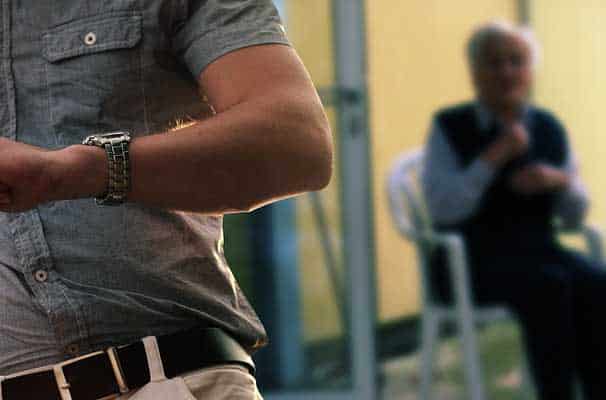Christmas is looming but for some of us this won’t be the most wonderful time of the year
How much can you actually say in 15 minutes? For certain care home residents, this is the amount of time they are permitted to have with their loved one – even at Christmas.
Pre-pandemic, people could visit nursing homes during the set daily visiting hours and typically, there was no restriction as to the number of visits per week or their duration. The holidays were an exceptionally busy period as people have more spare time to spend with family and because it means so much.
Now, almost three years since the coronavirus pandemic outbreak, some nursing homes are still refusing quality family time to their residents. Using the virus as an excuse, care homes impose restrictions that are at times unnecessarily harsher than the government measures.
And this won’t change over the holidays.
Some have set a limit to the number of visits per week while the duration varies from 15 to 30 minutes. But rules differ in every facility, with some being more relaxed and allowing hourly visits. The president of the Cyprus Association of Nursing Home Owners Loizos Gregoriades said the basics, such as requesting for a negative Covid test from visitors and new admissions are always followed.
But an especially strict Nicosia-based facility allows up to two 20-minute visits per week for each resident from 9 to 11am and 3 to 5pm after an appointment. They also forbid residents from spending time with their relatives outside the care home.
“I find it strange that they insist on such details,” geriatrician and head of the National Gerontology Centre Marios Kyriazis told the Sunday Mail.
Most pensioners have been vaccinated while there are drugs available that prevent serious illness, Kyriazis explained. “In any case, they can still catch the virus whether they see someone for 20 minutes or whether they go and spend hours at their relatives’ home,” the doctor noted.
Meanwhile, such policies go against the health ministry decree currently in force.
Under the decree, visits to nursing homes and other 24/7 structures are allowed every day for up to two people per resident while more can visit upon the approval of the facility’s director. All visitors regardless of vaccination status must present a negative PCR test for coronavirus carried out within the last 48 hours or a negative rapid no older than 24 hours.
Apart from mandatory testing, it is clarified that only one visitor should be present at a time.
The decree also provides that residents are permitted to leave the home and even stay overnight outside the facility. In this case, no testing is required by relatives, but the residents must carry out a rapid test upon their return to the home.
So why aren’t these permitted by all care homes?
Responding to this question, care home owners said that it is to prevent the spread of the virus at all costs while allowing everyone to have at least a brief visit with their relatives.
“We try to protect our elderly as much as possible,” the owner of a Larnaca based nursing home said.
Visits might take place in an outdoor area or a room near the entrance to prevent visitors from coming in contact with the rest of the residents. So, if the space only allows two or three families at a time, the number of visits must be restricted to cater every resident.
But health ministry spokesman Constantinos Athanasiou clarified that while it is possible for nursing homes to apply further restrictions, it is the decree that supersedes.
“These are the minimum requirements. Then, nursing homes may apply stricter measures. However, the decree supersedes their internal policies,” the spokesman told the Sunday Mail. “They cannot forbid something when there is a decree that says it is permitted,” Athanasiou clarified.
Hence, nursing homes cannot restrict visitations further or ban residents’ visits to their families without a reason. The cabinet approved decree carries more weight, he explained.
“There must be a reason, like if coronavirus cases have been detected,” he said.
According to Athanasiou, no complaints have been made to the health ministry or the deputy ministry for social welfare on the issue. But this is likely because few people are familiar with the exact wording of the decree and trust the facilities to inform them of the measures.
For Kyriazis, no measures should be implemented, as everyone can be responsible using “common sense”.
“Coronavirus is not the most important problem concerning the elderly right now,” the retired doctor said.
Health ministry data showed the highest number of cases traced in nursing homes was December 1, when 108 cases were traced across the government-controlled areas. But cases appear to have stabilised dropping to 56 after 5,000 tests carried out in the December 2 to 8 week. Almost half of those cases, 47 per cent, were traced in Nicosia, the district with the highest population.
Weekly rapid tests are carried out on all residents and employees of nursing homes by health ministry units.







Click here to change your cookie preferences